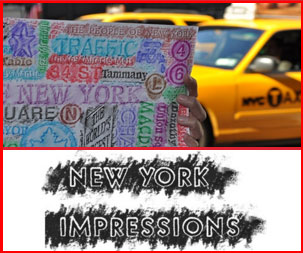In any other person’s basement, spending hours upon hours punctuated only by pretending to be a doll salesman would be unnerving. Indeed it sounds like an Edgar Allen Poe plot, as observed in the play itself. When the celebrity in question is Barbara Streisand, however, it is a comedy—and a raucous comedy at that.
Buyer & Cellar is writer Jonathan Tolins’s flight of fancy inspired by a chapter in the diva’s book, My Passion for Design. In it (this is real, by the way) we discover that Barbara Streisand decided to organize her immense collection of antiques, clothes, and miscellaneous expensive artifacts into a faux mall beneath her house. (Or “arcade,” as wealthy white people might say.) Tolins discovers the absurdity of this subterranean “shoppe” and rings it like a bell throughout.
The one man show stars the talented Michael Urie as Alex Moore, whose timing and report with the audience is remarkable. He uniquely portrays each character he plays, instantly shifting from his own flamboyant boyfriend to a droll Barbara Streisand, then back to himself. Urie begins the play by immediately breaking the fourth wall and addressing the audience about the ensuing program. He explains to us that Barbara Streisand’s book is real, that her basement is real, but that the story is not—just in case any nefarious Streisand litigators are lurking in the balcony.
Then we are in the midst of the play, without so much as a nod or change in light. Urie offers no “thank you, please enjoy the show” moment for theater goes to gear-shift with. He simply continues chattering without transition, sliding into the play itself and the role of Alex. The subtlety and speed of the change is remarkable, and underlies the fact that in Buyer & Cellar the audience is in effect gossiping with Alex, not just watching him.
There is plenty to gossip about. We are treated to a voyeuristic perspective of the singer/actress/director with more money than Croesus, and possibly more ego. (Among the many accessories in the cellar is “a mink hat for tug boat travel.”) Streisand’s extravagance combined with her meticulous attention to detail is confronted, hilariously again and again.
The sheer weirdness of such a situation, far from being zany, is incredibly clever. My favorite scene occurs early on, when Alex first meets his employer. She glides into her faux mall, apparently window shopping, then fawns over a doll. Without having introduced herself or commented on anything else, she asks how much it costs. Alex throws out a random number, $500, only to be rebuffed by Streisand, who says its too high. She tries to haggle with him, but he insists the price is non-negotiable. Still unsure of how to handle his employer, he suggests that he put the item on hold for her, then, gripped by the absurdity of the role playing, asks, “AND WHAT NAME SHOULD I PUT IT UNDER?”
While Streisand at first appears psychotic, the charade is soon dropped, and the rest of the show follows Alex has he goes from curious to enthralled to desperate for Streisand’s attention. An invitation from working as a clerk in her fanciful subterranean mall to seeing the aesthetic paradise of her home above (“as if your grandma designed the Apple store”) becomes an obsession.
Urie’s portrayal of Barbara Streisand is funny and over the top, but rarely mean spirited. The play is clearly written for Babs fans, and as such, the humor begins with Streisand adoration as a starting point, rather than eviscerating her as a public figure worthy of scorn. She comes off as a likable megalomaniac who occasionally reveals a much greater clarity of self than she indicates, as well as brief glimpses of vulnerability.
References to Streisand’s songs, films, and former husbands are peppered throughout, from overt discussion to subtle puns. While brimming with inside jokes, Streisand references and Babs datum are not delivered in a heavy-handed way. If “Barbara Streisand” were substituted with a pseudonym, we would still deduce the extravagances of the character and be able to laugh at the world she has created and which our protagonist must maneuver through.
Buyer & Cellar is theatre at its best. If we wanted to, we could stay home and watch The Prince of Tides on Netflix. But if we did, we would not be a part of the show ourselves. What is brilliant about Tolins’s script, and its execution through director Stephen Brackett and actor Michael Urie, is that we the audience are very much a part of the creative process. From the initial tumbling of the fourth wall to the ongoing inside jokes and gossip, we’re able to participate in the hokum of celebrity worship, envy, and disdain in a way which would be impossible as viewers of a film. (Even one starring Barbara Streisand.)
Andrew Heaton is a standup comedian in New York. Links to his book and other articles can be found at www.MightyHeaton.com











